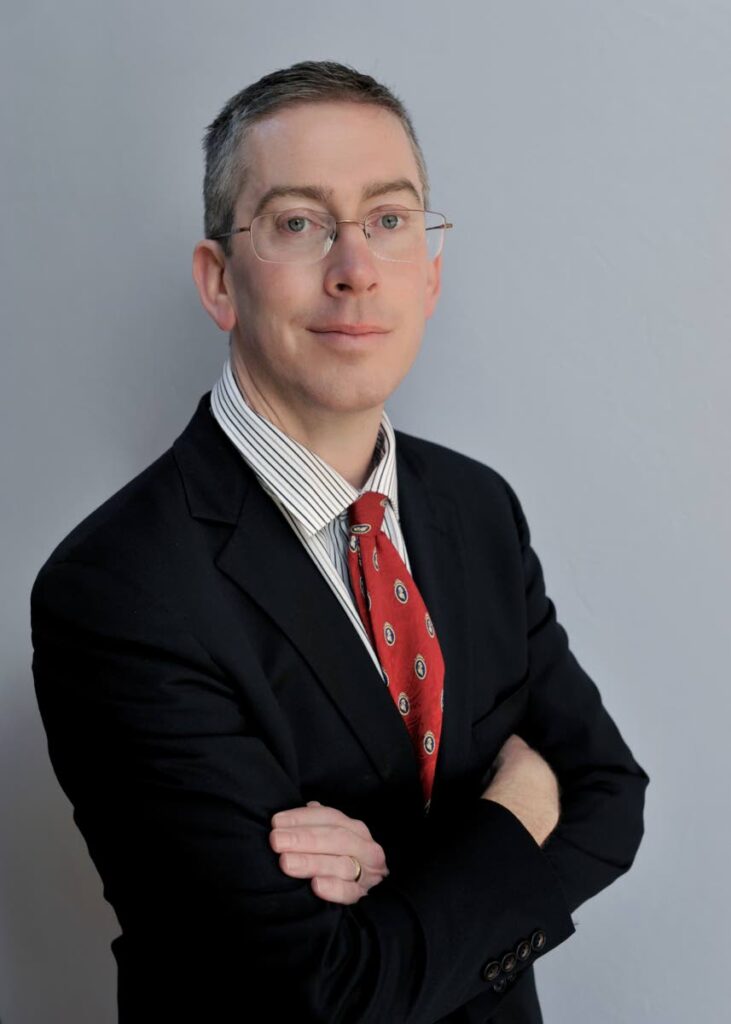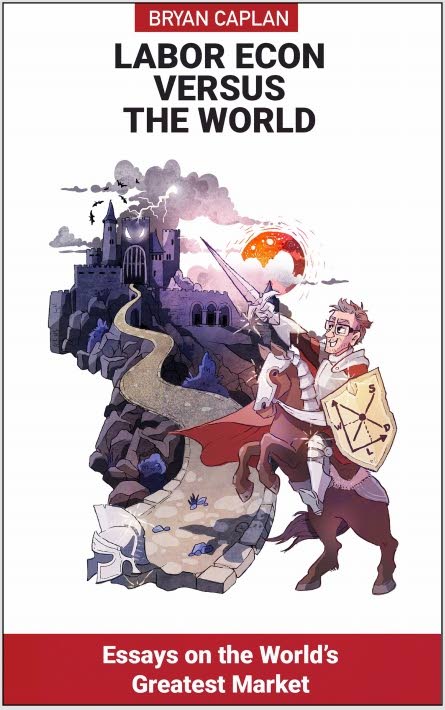Why everything you believe about economics is wrong

kmmpub@gmail.com
Almost everything we believe about how government, society and companies govern our our working lives is totally false.
So says Bryan Caplan. In his latest book, Labor Econ Versus the World: Essays on the World's Greatest Market, the fiery public intellectual and professor of economics at George Mason University takes aim at many of the core tenets of economics and law and promptly skewers them.
If the slaughtering of sacred cows is your idea of brisk entertainment, then Caplan delivers in spades.
This collection of essays is at its finest when Caplan targets government regulation and the damage of “big government,” breaking down the impact of both on workers in broad simple strokes.
The first widely received “tenet” that receives Caplan’s ire is that government laws are the main reason why workers have any kind of decent living standards today.
Most people believe this, especially in the Caribbean, where distrust amongst workers and employers is rife. But make no mistake, the government is not the reason that living standards have increased over the past decades.
“High worker productivity plus competition between employers is the real reason today’s workers have a decent standard of living. In fact, 'pro-worker' laws have dire negative side effects for workers, especially unemployment.”
The more governments try to mandate “industry working standards,” the harder it is for people to meet those, benefiting people that already have jobs – and shutting out those that don’t.
He then breaks down the concept that the modern welfare state is the only thing that has prevented mass poverty in recent decades – an especially ingrained belief in statist post-colonial countries like those in the Caribbean.
Caplan strips out the fuzzy notion that the welfare state is a model of compassion. As he breaks down, using unsparing statistics: “the welfare state primarily helps the old, not the poor – and 19th-century open immigration did far more for the absolutely poor than the welfare state ever has.”

The third widely accepted tenet is that less immigration – especially the low-skilled sort – holds back unemployment, poverty and inequality in his home countries.
As Caplan puts it: “Specialization and trade are fountains of wealth, and immigration is just specialisation and trade in labor.”
The tremendous benefits of immigration to home-country workers and overall welfare have long been outlined and Caplan is not short of evidence. Yet it is in this essay that one bias of the otherwise incisive economist starts to show itself.
Quite simply, he is an economist. That means that when it comes time to deliver policy recommendations, there is a tendency to dismiss culture and political economy.
In the case of immigration, there has been near-universal consensus on its economic benefits. However, Caplan argues for mass open global immigration, a policy which, while sound in economic theory, would practically give tremendous fuel to the nationalists and xenophobes the world over if ever seriously put forward.
Politics and culture matter.
This emerges when Caplan claims that gender and racial discrimination is a “marginal issue at most” and that “large group differences persist because groups differ largely in productivity.”
He likewise puts down welfare gains to women almost entirely to economic growth and mating markets rather than feminism. Both cases fail to dig deeper into the cause of lower productivity (in the former, racism), and how women were able to enter the workforce (namely, feminism and post-war norm changes).
This continues with his (otherwise rightly needed) critique on education. If ever there was a sacred belief that needed puncturing, education is it.
As Caplan points out, far from being the most important thing to economic growth, “Education is mostly signalling; increasing education is a recipe for credential inflation, not prosperity.”
This would resonate with more than a few of our recent graduates. Education leaves too many behind, relative to the resources invested in it: “After making obvious corrections for pre-existing ability, completion probability, and such, the return to education is pretty good for strong students, but mediocre or worse for weak students.”
Yet, as fellow George Mason economist Tyler Cowen points out, education is also key to provide students with the cultural skills needed to operate in an economy, even if its performance on technical skills is dire.
Emerging from the book is an overall narrative of optimism, freedom and Enlightenment-inspired clear thinking. It is fitting that is closes with an excoriation of “overpopulation” as a problem, and an affirmation of human ingenuity.
Imperfect as it is, Labor Econ Versus the World is a mus- read for anyone uninterested in intellectual complacency.
Kiran Mathur Mohammed is an economist and co-founder of medl, an IDB Lab, Microsoft, WHO & FT backed health tech company, winner of the TT Chamber Champion of Business award

Comments
"Why everything you believe about economics is wrong"